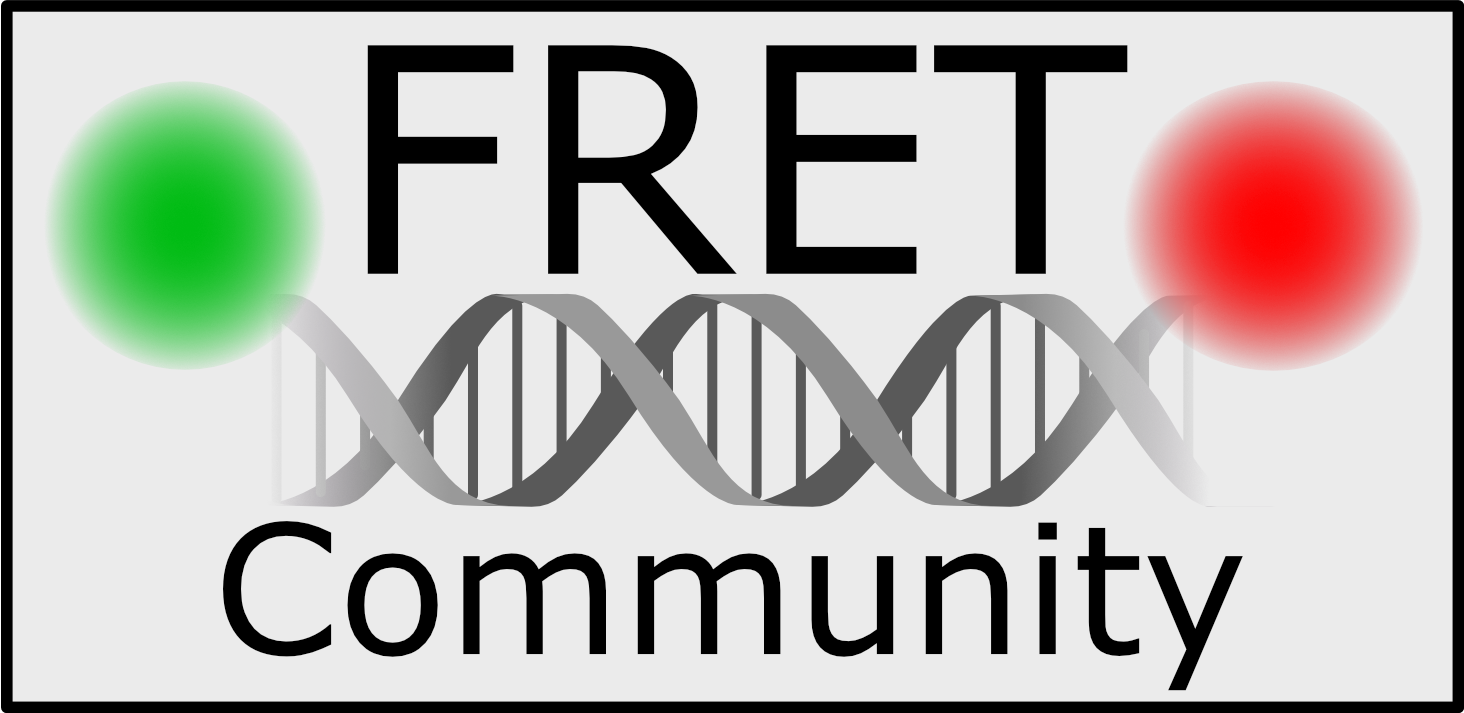FAQ
What is the advisory board?
To initiate the community, an advisory board will be established consisting of researchers at different career stages (early stage, young investigator, senior principal investigators), as well as professionals from industry and journal editors. The constituted advisory board will define the direction and agenda of the FRET community. The first task of the advisory board will be to establish the organizational structures of the community, and discuss and ratify the bylaws.
What does it mean to be on the advisory board?
As a member of the advisory board, you will be responsible for planning, initiating, and coordinating the activities of the FRET community, such as disseminating efforts, scientific challenges, workshops and conferences. Being on the advisory board will grant you an opportunity to push forward your vision and ideas for the community.
For how long will the advisory be elected?
It is proposed that the first term of the advisory board will be for at least 1 year (subject to change by the first elected board). Elected members of the advisory board may resign at any time, in which case the follow-up candidate of the last elections will be called to the board.
Election of the Advisory Board – Results
The inaugural Advisory Board of the FRET community has been elected on March 30, 2020. We are grateful to everyone who participated in the election as a voter or candidate.
Overall, we had a voter turnout of 58% (Senior Researcher: 67%, Young Investigator: 44%, Early Stage Researcher: 54%). Additional statistics on the elections will be released in consultation with the advisory board.
Please find the elected advisory board below. For a full list of all candidates and their mission statements, please see the Elections page.

Senior Researcher

Victoria Birkedal
Aarhus University, Denkmark
I will support the FRET community by working to communicate and promote all aspects of FRET studies both within our community and to the scientific community at large.

Niko Hildebrandt
Université Paris-Saclay / Université de Rouen Normandie, France
The FRET community should show that FRET is so much more than a structural tool used in single molecule spectroscopy and microscopy.

Don C. Lamb
LMU Munich, Germany
I wish to stimulate communication between members of the FRET community and disseminate the latest advanced methodologies to enable their power to be realized by a broad number of researchers.

Claus Seidel
Heinrich Heine University, Germany
As a member of the advisory board, I am striving for advancing the presence and appropriate use of FRET studies in spectroscopy and imaging.

Tim Craggs
University of Sheffield, UK
I am passionate about bringing the power of quantitative FRET measurements to non-specialists, whilst also extending the toolbox of FRET methods to enable us to answer ever more complex questions.

Achillefs Kapanidis
Oxford University, UK
The FRET-community effort is important since it can address challenges encountered in the field and help FRET users and applications to continue to grow.

Jens Michaelis
Ulm University, Germany
I want to further develop smFRET methods for quantitative distance measurements and structural analysis.

Shimon Weiss
UCLA, USA
As a member of the advisory board, I will champion open science practices and […] represent the FRET community to other scientific communities.
Young Investigator

Richard Börner
University of Applied Sciences Mittweida, Germany
To except FRET as a standard, the FRET community needs to provide standardized experimental procedures and software tools […].

Thorben Cordes
LMU Munich, Germany
I consider it essential to establish smFRET now as an accepted and reliable tool for integrative structural biology using its unique features to map structure and function of biomolecules and (bio)chemical processes in space and time.
Early Stage Researcher

Benjamin Ambrose
University of Sheffield, UK
I am excited about the potential of the FRET community to collaboratively tackle larger problems such as the dissemination of open source hardware and analysis tools […].

Thomas-Otavio Peulen
UCSF, USA
I fret on FRET and see newcomers struggling. Thus, we, the experts, have to make our techniques accessible to ensure correct analyses of experiments.

Anders Barth
Heinrich Heine University, Germany
I believe that the free availability of software and the standardization of analysis procedures will be vital for the growth of the field.

Sonja Schmid
TU Delft, Netherlands
It’s great to see the FRET community joining forces, and I am ready to assist in further promoting this exceptionally elegant & versatile technique.
Industry, Instrument Facilities, Editors and Other

Marcelle Koenig
Senior Scientist in Systems Development
PicoQuant
Berlin, Germany
As a member of the Advisory Board I‘d like to strongly support the idea of quantitative FRET with generalized protocols and developed FRET standards.

Hamid Soleimaninejad
Microscopy Application Specialist,
Biological Optical Microscopy Platform,
University of Melbourne, Australia
